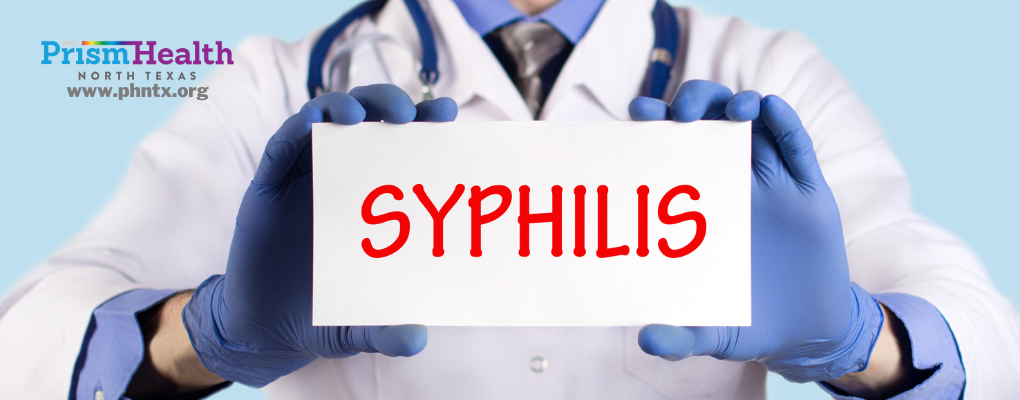
STIs 101: What is Syphilis?
Published: 04-20-2023 | 2 MIN READ | Author: Prism Health North Texas
Syphilis is a sexually transmitted infection when the bacterium is introduced to the body from direct contact with a sore on the body of an infected sexual partner. Syphilis cases within the United States decreased in the 1990s and reached historic lows in 2000 and 2001, however, the number of syphilis cases steadily began to rise again. It is currently one of the most common STIs in the United States.
Stages and Symptoms of Syphilis
The development of syphilis is broken into stages and there are separate symptoms for each stage.
Primary Stage: One or multiple, round, painless sores will develop where the bacterium has entered the body. The sore will last about 3-6 weeks and heal, even without treatment. Treatment is still necessary to stop the infection’s progression.
Secondary Stage: During this stage, a person will either experience a rash on one or several parts of their body or sores in their mouth, vagina, or anus. They may also have fever-like symptoms like:
High body temperature
- Swollen lymph glands
- Sore throat
- Hair loss
- Headaches
- Weight loss
- Muscle aches
- Fatigue
These symptoms will also go away on their own, but treatment is still needed so the infection can be cured.
Latent Stage: A time when a person does not display any signs of syphilis. If they do not get treatment it may remain in the body for years without symptoms.
Tertiary Stage: For most people, the infection will not progress this far, but if it does, the syphilis bacterium will attack the heart, blood vessels, brain, and nervous system. It can damage internal organs and can result in death.
Did You Know?
Several historical figures have died (or suspected to have died) from syphilis including Al Capone, Adolf Hitler, and German philosopher, Frederick Nietzsche.
Syphilis Treatment
Syphilis can be cured with a prescription of antibiotics from a doctor. However, once a person is treated and cured, they can be re-infected.
Antibiotics will not reverse any damage done by the syphilis infection if it is left untreated for too long.
Syphilis During Pregnancy
Syphilis can be spread to a baby if the mother is not tested and treated. Babies born with syphilis can have low birthweight or be stillborn. A baby with syphilis can also not show symptoms but develop serious problems within a few weeks that can result in cataracts, deafness, seizures, or death.
Risk and Other Factors Concerning Syphilis
If you are sexually active and either you or your sexual partner have multiple partners, you are at risk of syphilis. Using condoms correctly can reduce your risk of contracting syphilis, however, it only helps some since sores can appear on parts of the body that the condom does not cover.
Having syphilis can also increase your risk of being infected with HIV. Syphilis sores make an easy entrance into the body if you have sexual contact with a person that does not have an undetectable (U=U) viral load of HIV.
Syphilis can easily be tested for and treated early with little to no effect on your body or health.
Sources:



